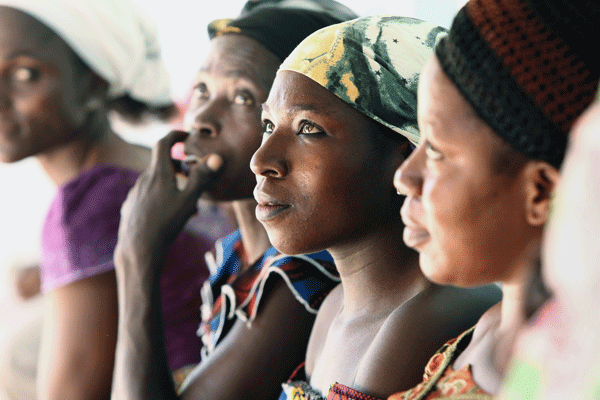
WASHINGTON (CNS) — More than 20,000 people are descending on the U.S. capital for the XIX International AIDS Conference, and Msgr. Robert J. Vitillo feels right at home.
As the Catholic Church's point man on HIV and AIDS, he moves among the scientists, politicians and activists with ease, having worked for years to make sure that those involved in faith-based responses to the disease have their voices heard in the biennial gatherings.
Yet, Msgr. Vitillo has not always been welcomed. In the early years of the pandemic, he was provided with a bodyguard at an AIDS conference in Europe.
“A lot of the resistance to our participation has been based on misinformation and accepting some of the media's perspective on what the church says and does rather than what we actually say and do,” said Msgr. Vitillo, special adviser on HIV and AIDS for Caritas Internationalis. “I meet people all the time who are shocked when they hear what the Catholic Church does in response to AIDS. They thought all we did was tell people they were terrible sinners.
“The church has been there from the beginning of the response to HIV and AIDS. In fact, it was mainly church organizations that began to accept people who were dying of these very strange illnesses and infections before we even knew that it was caused by HIV or we had coined the terms AIDS. It's always been there, and it has responded very well, without stigma and discrimination,” Msgr. Vitillo told Catholic News Service.
In the days leading up to the July 22-27 conference, news of research into a vaccine for the virus, as well as rumors that a cure for AIDS is on the horizon, have focused media coverage on the science of the disease. Yet Msgr. Vitillo said it is too early to celebrate.
“There has always been a tension in the field of HIV response because many people are looking for the easy solution. They did that when they tried to promote just the use of condoms, arguing that was the solution to everything. Thirty years on, the experts realize that we need many different approaches to prevention,” he said.
“I know we're talking a lot about 'the cure,' but at the point where science is right now, we only have antiretroviral treatment as the best approach medically,” he told CNS. “We have a long way to go. I hope there's a miracle. I hope we find a cure or a preventative vaccine soon. But so far we don't have that, and we shouldn't forget the social, developmental, psychological and spiritual responses that are part of a comprehensive response to HIV and AIDS.”
Msgr. Vitillo said antiretroviral treatment has not only saved the lives of people living with HIV, but it has reduced the infection rate dramatically in some countries, primarily in Africa. Studies show people on antiretroviral treatment are 96 percent less likely to pass on the virus. This development has been critical in reducing mother-to-child infection rates.
Msgr. Vitillo will speak to a pre-conference gathering of some 80 Catholic AIDS workers from around the world, detailing his participation in a massive program that aims to halt new infections of children by 2015 in India and 21 African countries.
The plan aims to assure that pregnant women who are HIV-positive are provided with antiretroviral treatment to ensure that the child is not infected in the womb, during birth, or during breast-feeding.
The plan also aims to keep the women healthy, “because we don't want to save the children and then have them lose their mothers,” Msgr. Vitillo said.
Although the cost of antiretroviral treatment has dropped to roughly $100 per patient per year in poor countries, Msgr. Vitillo said church workers are continuing to push pharmaceutical companies to respond appropriately to the crisis. He said a Caritas campaign to develop better pediatric dosing of antiretroviral drugs has enjoyed some success.
At this year's AIDS conference, he and other church leaders will be pushing the Medicines Patent Pool, where drug companies will deposit their patents for HIV medicines, allowing faster development of needed drugs. Some companies have agreed, and Msgr. Vitillo said he will be thanking them. Others will be encouraged to participate.
Msgr. Vitillo said he has worked hard to keep open a dialogue with the giant pharmaceutical companies.
“We recognize that they have a purpose that includes making a profit, but they can't forget the fact that we have large numbers of people who need their help in order to survive,” he said.
— By Paul Jeffrey Catholic News Service






